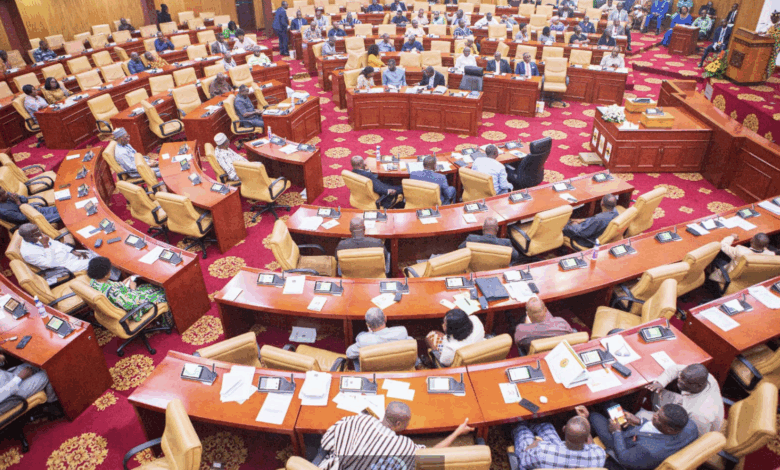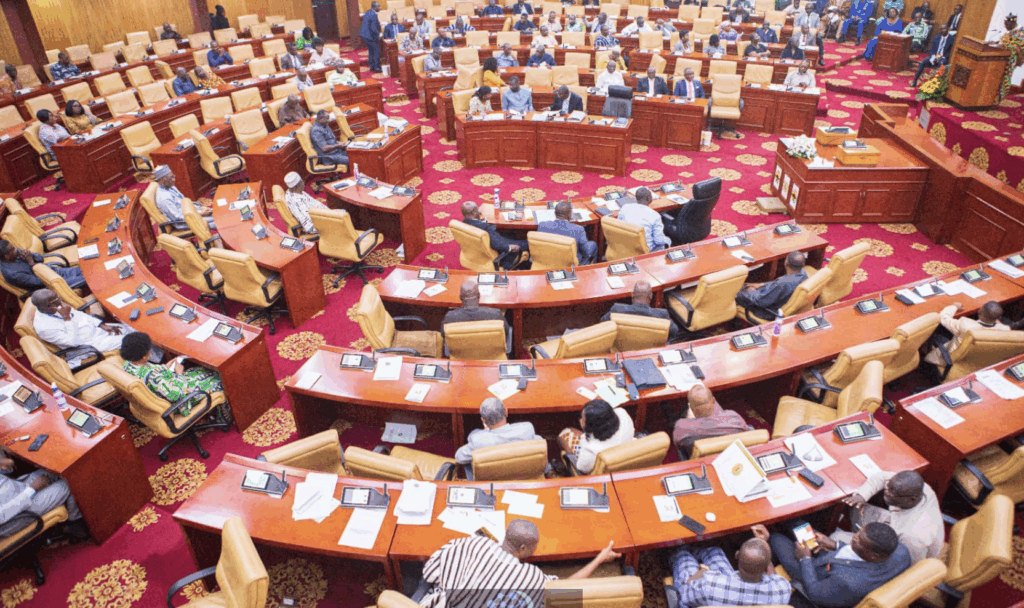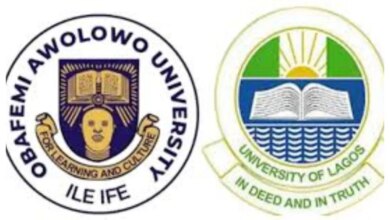The US–Ghana Deportation Agreement and Article 75 of the 1992 Constitution: A Constitutional and Theoretical Appraisal


- Introduction
The recent discourse surrounding the deportation agreement between the United States and Ghana raises fundamental questions about the constitutional processes required to give such an arrangement binding force under Ghanaian law. The 1992 Constitution of Ghana, particularly Articles 75 and 40, establishes a clear framework for the making, ratification, and domestication of international agreements. Case law has also reinforced the principle that while the Executive has the authority to negotiate and sign treaties, such instruments do not acquire the force of law in Ghana until they are duly ratified by Parliament. The legal implications of this position are profound. Unless properly ratified, agreements such as the US–Ghana Deportation Agreement remain politically persuasive but not legally enforceable within the domestic legal order. This distinction underscores the tension between international diplomatic commitments and constitutional safeguards designed to preserve parliamentary oversight and protect Ghana’s sovereignty.
This short article seeks to present both sides of the controversy, assess them in the light of Ghana’s constitutional framework and case law, and advance the most persuasive argument in a context of international commitments and constitutional limits (between diplomacy and legality). It further aims to anticipate the potential legal implications of the agreement and, in doing so, provide clarity and enlightenment to students of Public International Law and the public, especially those who have asked of my opinion on the matter.
2. Arguments Raised in the Controversy
The Minority in Parliament contends that the deportation agreement violates Article 75 of the 1992 Constitution, which mandates parliamentary approval for all international treaties and agreements. According to their position, the government failed to comply with this constitutional requirement, thereby rendering the agreement null and void.
In support of their argument, the Minority refers to the 2016 Supreme Court decision concerning the transfer of Guantánamo Bay detainees to Ghana, where the Court held that any international agreement not subjected to parliamentary ratification is unconstitutional and unenforceable. On this basis, the Minority has called for the immediate suspension of the agreement until Parliament has duly exercised its constitutional role of scrutiny and ratification. They have also demanded clarity regarding the procedures and safeguards surrounding the implementation of the arrangement.
The government, on the other hand, has defended the agreement, asserting that it is consistent with Ghana’s long-standing commitment to human rights and Pan-African solidarity. It maintains that the deportees in question are citizens of other ECOWAS member states, and Ghana is merely facilitating their temporary return pending onward travel to their respective home countries. Some officials of government have also argued that the deportation agreement with US is a Memorandum of Understanding (MOU) and as such does not fall under Article 75 of the 1992 Constitution. Again, they argued that the document is a non-binding instrument that allows Ghana to withdraw without incurring legal obligations and that it is rooted in Ghana’s ECOWAS treaty obligations so does not require parliamentary ratification. These counter arguments were raised by the government side to justify deportation of the group of individuals expelled from the US under controversial circumstances, including four Nigerians, three Togolese, two Malians, one Gambian, and one Liberian.
To determine which side advances the stronger argument, it is essential to begin with the constitutional provision that lies at the heart of the controversy. Article 75 of the 1992 Constitution prescribes the process for the execution and ratification of international agreements, thereby serving as the foundation for assessing the validity of the deportation arrangement.
This constitutional framework must be read alongside the jurisprudence of the Supreme Court, which has clarified the scope and effect of Article 75 in cases such as the Guantánamo Bay detainee decision. Only by considering both the constitutional text and the binding authority of case law can we determine whether the government’s actions fall within the law or whether, as the Minority contends, the agreement is unconstitutional. It also becomes necessary to explore whether any exceptional circumstances or recognized legal doctrines could justify a departure from the ordinary requirements of ratification.
3 Constitutional Framework under Article 75
Article 75 of the 1992 Constitution provides the principal legal basis for the making of treaties and international agreements in Ghana. Under Article 75(1), the President has the authority to execute or cause to be executed treaties, agreements, and conventions in the name of Ghana. However, Article 75(2) makes it clear that such agreements do not acquire binding force unless they are ratified by an Act of Parliament or by a resolution of Parliament supported by the votes of more than one-half of all Members of Parliament.
This dual requirement reflects the constitutional balance between executive authority in conducting foreign relations and parliamentary oversight in safeguarding national sovereignty and legality. The framers of the Constitution clearly intended that no international commitment should become enforceable within Ghana’s legal order without the express approval of the people’s representatives in Parliament. Consequently, the issue at the centre of the US–Ghana Deportation Agreement controversy turns on whether the government complied with this constitutional process.
4. Theoretical Explanation
The incorporation of international law into national law or the visa versa, is grounded in two competing theories: “monism and dualism”. Every State in the world adopts a particular one of the two theories or in modern times combine the two in a particular manner which is acceptable to both systems of law. Ghana, United Kingdom, United States of America, Australia and many other are dualist States.
Dualism is a theory in international law that holds that international law and domestic law are two separate legal systems. For international obligations (like treaties and agreements) to have legal effect within a state, they must be incorporated into domestic law through a constitutional or legislative process. Without such incorporation, they remain binding internationally but unenforceable domestically.
In monist states, on the other hand, international law and domestic (national) law are seen as part of a single legal order. This means once a State accepts an international treaty or agreement by signature or ratification it becomes directly applicable and enforceable within the State without the need for additional legislation. So, unlike dualist states (which require parliamentary incorporation), monist States treat ratified international law as automatically binding on their courts, officials, and citizens. South Africa and Egypt, for instance, follow the monist approach.
Ghana’s 1992 Constitution reflects this dualist approach in Article 75.So, Ghana separates the signing / execution of international agreements from their domestic effect.
Those who argue that the US–Ghana Deportation Agreement requires ratification are essentially applying dualism:
- The mere signing of the agreement by the executive does not automatically make it enforceable within Ghana.
- For it to affect Ghanaians’ rights and obligations domestically (e.g., rules for deportations, cooperation measures), it must go through Parliamentary ratification under Article 75.
- Without ratification, Ghana may be internationally bound toward the US, but domestically, its organs cannot legally enforce it.
Dualism explains why international consent (signing) is not enough, rather domestic legitimacy (ratification) is needed. It supports the argument that bypassing Parliament would be unconstitutional, since dualism requires a “bridge” (ratification law) between international obligations and municipal application. Therefore, any deportations or actions taken solely on the basis of the unratified agreement would lack lawful domestic authority.
To sum up, dualism underpins the argument that the US–Ghana Deportation Agreement cannot be enforced in Ghana without ratification, because international law and domestic law are distinct, and Ghana’s Constitution requires a ratification process to translate international agreements into domestic effect.
5. Judicial Interpretation and Case Law
The Supreme Court has had the opportunity to interpret Article 75 and its implications for Ghana’s treaty-making process. A landmark authority is the 2016 case concerning the transfer of two Guantánamo Bay detainees to Ghana. In that case, the Court held that the Executive’s decision to admit the detainees, pursuant to an international arrangement with the United States, constituted an international agreement within the meaning of Article 75. The Court further emphasized that without parliamentary approval, such an agreement was unconstitutional and unenforceable in Ghana.
This ruling underscores two important principles. First, it establishes that the definition of “agreement” under Article 75 is broad, extending beyond formal treaties to include bilateral arrangements or memoranda with international implications. Second, it affirms Parliament’s indispensable role in legitimizing such commitments. Several other Supreme Court rulings, including Banful v. Attorney-General (2016), GITMO case (J. Amidu v. Attorney-General & Others, 2016), and Brogya Gyamfi v. Attorney-General (2017) reaffirm that even unsigned or informal arrangements require parliamentary ratification once implemented. This would mean that the government cannot unilaterally enter into agreements with other countries and have them executed without Parliament’s approval.
The Brogya Gyamfi case, for example, concerned the agreement between Ghana and the United States relating to the establishment of a Host Nation Support Agreement (HNSA) for U.S. military cooperation in Ghana. The applicant challenged its constitutionality, claiming it had not been properly ratified. The Supreme Court reaffirmed its earlier position in Banful and ruled that the Host Nation Support Agreement was indeed an international agreement within the meaning of Article 75 and because it had not been laid before Parliament for ratification, it was unconstitutional.
The Court’s reasoning in these cases therefore strengthens the claim that the US–Ghana Deportation Agreement, in the absence of parliamentary ratification, cannot acquire binding legal force under Ghanaian law.
At the same time, the Court’s jurisprudence leaves open the question of whether certain administrative or humanitarian arrangements, particularly those framed as temporary or facilitative, might fall outside the scope of Article 75. It is this possible exception that the government relies upon in defending its actions, arguing that the agreement is grounded in humanitarian considerations and Pan-African solidarity rather than constituting a binding international treaty.
6. Possible Exceptions and Humanitarian Considerations
While Article 75 and the Supreme Court’s interpretation appear to set a strict standard, the government’s defence raises the question of whether certain categories of agreements may fall outside the constitutional requirement for parliamentary ratification.
In particular, the government frames the deportation arrangement as an administrative and humanitarian measure, not a treaty in the strict legal sense. By this reasoning, Ghana was not entering into a binding international obligation but merely facilitating the temporary reception and onward travel of individuals to their respective home countries within ECOWAS.
This position draws some support from the principle of state practice in international law, where not all intergovernmental arrangements are elevated to the status of treaties. Practical arrangements—such as technical cooperation, administrative facilitation, or humanitarian assistance—may, in some contexts, be treated as executive agreements that do not require full legislative endorsement. The government’s reliance on Pan-African solidarity and humanitarian obligations reflects this perspective.
However, in Ghana (a dualist state) and other dualist jurisdictions, domestic law takesprecedence in municipal courts unless Parliament has incorporated the relevant international treaty or principle into domestic legislation.
- Pan-African solidarity or humanitarian obligations may be strong political, diplomatic, or moral reasons for government action, but legally they cannot override constitutional provisions or Acts of Parliament.
- Courts in Ghana will always test government action against the 1992 Constitution and domestic statutes, not against un international or regional commitments.
- This is why ratification and incorporation are so important—without them, even the best humanitarian or Pan-African obligations remain political aspirations, not binding law in Ghanaian courts.
Also, the solidarity and humanitarian arguments are not without difficulty. First, the scope of Article 75, as interpreted by the Supreme Court, is deliberately broad, capturing any international arrangement that creates obligations for Ghana whether it is Treaty, Convention, Protocol, MoU, Exchange of Notes, Executive Agreement or Covenant. Even where an agreement is framed as temporary or humanitarian, if it involves the rights and liberties of individuals—as in the case of the deportees who allege risks of persecution or torture—then the constitutional safeguard of parliamentary scrutiny arguably becomes indispensable.
Second, allowing the Executive to bypass parliamentary approval on the basis of administrative convenience could create a precedent that undermines constitutional accountability.
7. Evaluation and Conclusion
When weighed against the constitutional framework and judicial precedent, the Minority’s position appears more firmly grounded in law. Article 75 of the 1992 Constitution explicitly requires parliamentary ratification before any international agreement can acquire binding force within Ghana, and the Supreme Court’s decision in the Guantánamo Bay case reinforces this interpretation.
On this basis, the US–Ghana Deportation Agreement, in the absence of parliamentary approval, cannot be said to carry constitutional validity.
The government’s reliance on humanitarian principles and Pan-African solidarity provides important political and moral justifications, but these considerations cannot override explicit constitutional requirements.
While it is conceivable that certain administrative or facilitative arrangements might not trigger the ratification process, the present case involves significant legal and human rights implications, thereby strengthening the case for parliamentary oversight.
MoUs, administrative or humanitarian arrangements may still count, depending on whether they bind Ghana legally or create obligations, not just “political understanding”. In other words, it is the substance of the document, not the label, that determines whether it is an “international agreement” in Ghanaian constitutional law.
In conclusion, although the government may legitimately emphasize the humanitarian and regional solidarity dimensions of the agreement, the stronger legal argument rests with the call for constitutional procedure.
The constitutional design requires that even politically sensitive or urgent agreements be subjected to parliamentary scrutiny. This ensures not only legality but also transparency, accountability, and the protection of Ghana’s sovereignty within the international order.
If we want a mixture of monism and dualism, as in South Africa, then our constitution must explicitly provide for that (i.e. which types of agreements should be exempted from parliamentary approval – harmonisation approach).
DISCLAIMER: The Views, Comments, Opinions, Contributions and Statements made by Readers and Contributors on this platform do not necessarily represent the views or policy of Multimedia Group Limited.
DISCLAIMER: The Views, Comments, Opinions, Contributions and Statements made by Readers and Contributors on this platform do not necessarily represent the views or policy of Multimedia Group Limited.
Source link





